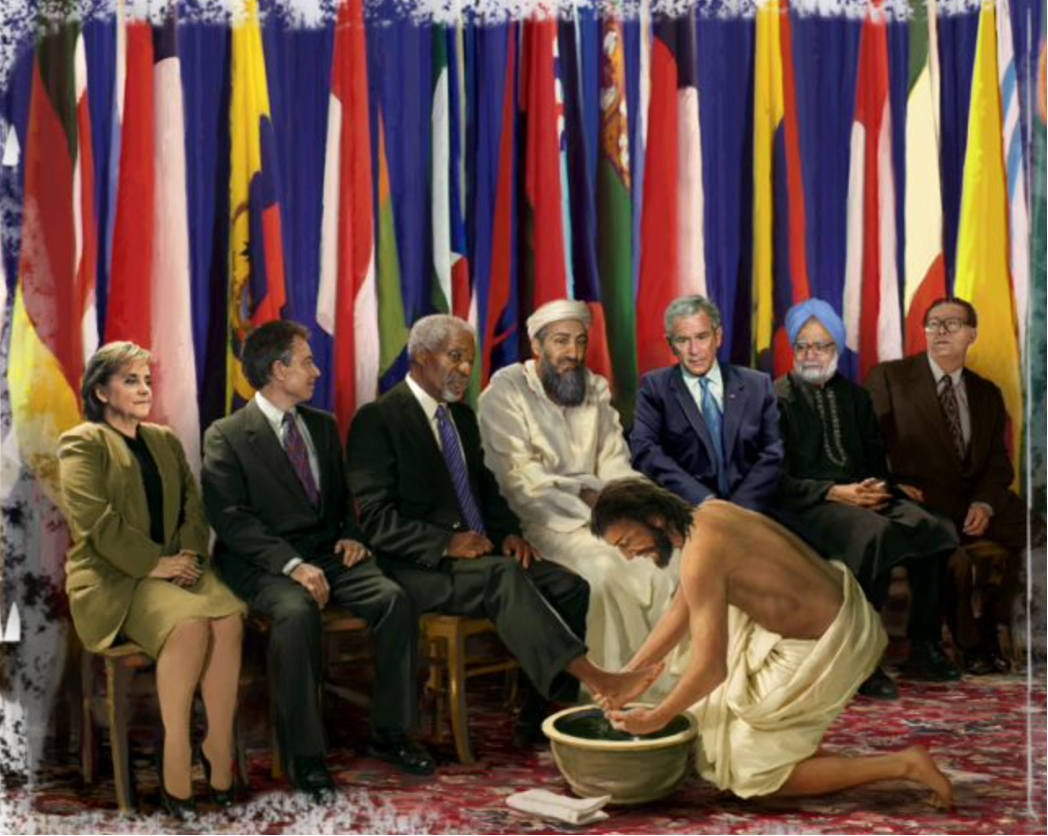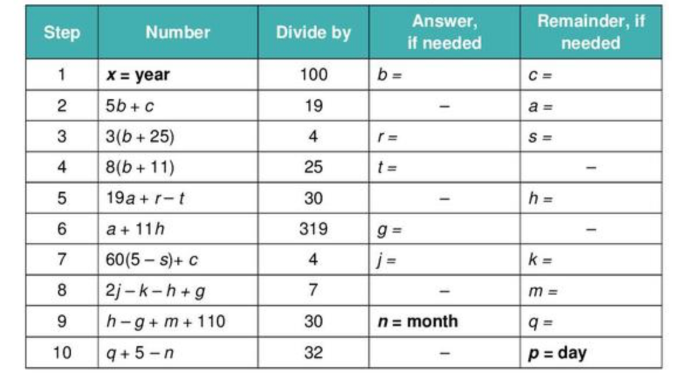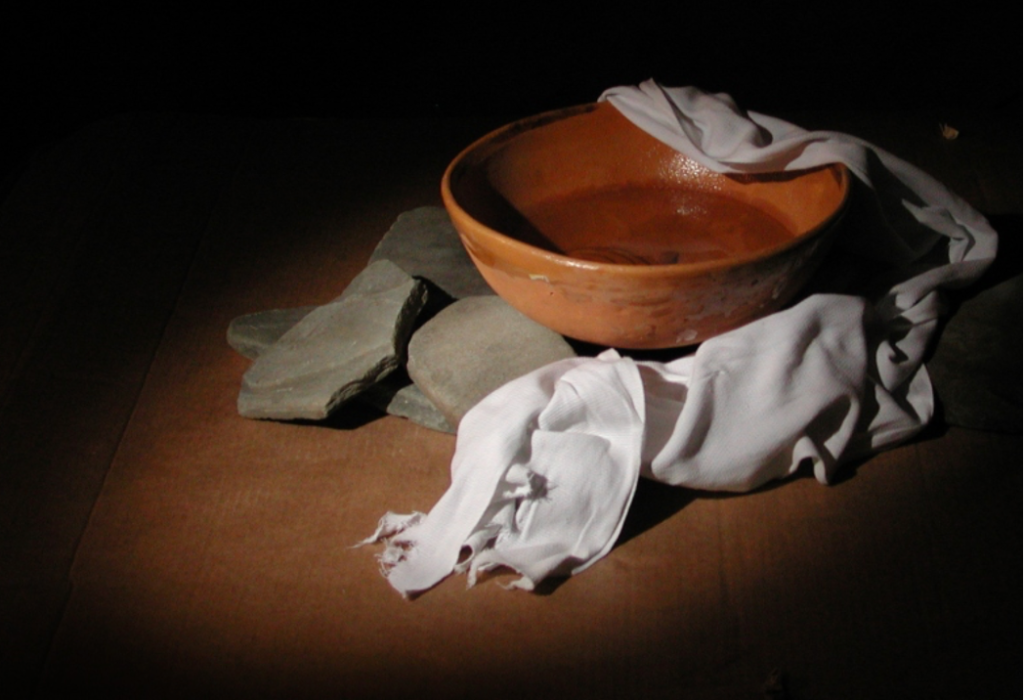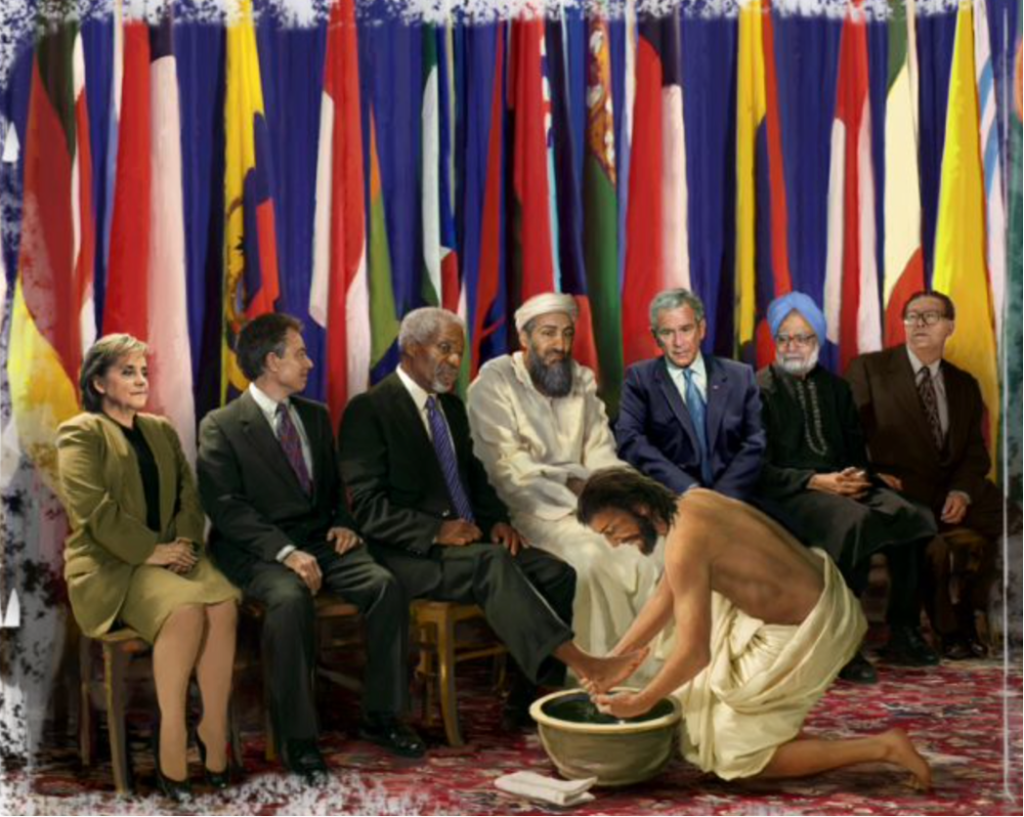
A reflection given on Maundy Thursday about Hopeful Serving, based upon John 13: 1-17,31b-35.
The date of Easter is always a mystery to me. But I can explain: take the current year and divide it by 100. So b = 20 and c = 22, ok? Multiply the b value by 5 and add the c, and then divide by 19.. keep up, it will be Easter soon!

Ceremonies
I know that it follows a complicated formula based upon the sighting of the moon. Thank goodness our birthdays are fixed, (unless you were born on a leap year) and easily determined. It is on these days that we can meet together to celebrate. We might also note those days when some get married or we pause to reflect upon the lives of others as an anniversary arises. These are fixed days and are what we might call ceremonial.
Rituals
There are some events which are more of a ritual, the start of something which will be remembered for a long time but occur irregularly. They are not fixed, they sometimes surprise us, they may even be spontaneous.
Maundy Thursday
Do we know the story of Holy Thursday? That the old English Mande which comes from the Latin Mantatum Commandment or mandate, to love one another as I have loved you, or the Old English word Maund which means to beg for beggars would gather outside churches in Holy Week?
In this passage from the Gospel according to John, we start the longest day : from John 13 until John 18:28.
As Jesus describes the Passover ritual we might wonder whether the listening disciples, reclining at the table, might have suddenly realised that when Jesus poke of Egypt it could equally have been replaced by Rome.
Here is no last supper for in the Gospel according to John, this is the day before Passover, this is a supper from within comes a transformation in the lives of the disciples and in us. I wonder what you took from this reading of such familiar verses?
What strikes you from this passage?
Possibly for me it was the foot washing. It strikes me as strange that we only consider foot washing once a year, when foot washing was a regular event in those days. Why the change?
Ritual for a on-off change

In this Gospel reading John 13:4-11 describes a foot washing. It would be uncommon for during a meal that the host would only then wash the feet of the guests. It’s significance was so much more than merely washing of the dirty feet.
- Jesus takes off his outer robe, and in the garb of a slave, ties a towel around his waist.
- Jesus pours water into a basin and starts to wash the Jerusalem grime off the feet of the disciples, and dries them with the towel.
- Simon Peter struggles with this very concept: foot washing wasn’t even acceptable for a Jewish slave let alone this guest of honour at this meal. “don’t just wash my hands but all of me” he cries out.
- Jesus, the Son of Man, the one whom was calling for a new Kin_dom, has overturned the social order by washing feet, responds that “And you are clean, though not all of you” That first You is yous, it’s plural.
But in John 13:12-20 we have a different event.
Spontaneous ceremony
- Jesus returns to the table and asks them what’s just happened?
- Jesus says that he has washed their feet, there’s an expectation that they should wash the feet of another. It is an expectation.
The first is a ritual foot washing: it is spontaneous – from within the meal. You can possibly imagine what the disciples and others around the table must have been thinking – where is he going now? The second description is the start of a ceremony; it will become a fixed event, in Holy Week.
But is that what Jesus is asking of his disciples?
We note that this meal was before the Passover, a time for families to return together: it gave them identity, confirmed membership even – we do that a lot with family meals but Jesus transforms this meal not one of a time to gather the team, but this is for Simon Peter one of individual transformation.
Peter is one who will become “wholly clean” so he can be a public witness to Jesus at Jesus’ trial and death. It’s a one time event. The disciples are being prepared for a role as those who will be a public witness beyond that – this is a regular action. But we have adopted in as once a year.
Jesus has described this foot washing as one that “Unless I wash you, you will have no part in me”, a future relationship is being formed. This is not a foot washing of a guest entering a house but one of transformation.
What does Jesus ask of us?
Jesus asked of his disciples to do three things to remember him: baptise others; to remember the meal that she shared that very evening; and wash one another’s feet. The disciples would soon be arguing about who is the greatest – as rule followers they weren’t the greatest.
But Jesus says “I confer upon you a kin_dom”, based upon service and humility.
How might we re-enact this today, not as a one-event ritual but as a spontaneous ceremony?
- What of that situation down the road at the bus stop when someone leans back on the bench with heavy bags sagging their shoulders: how might we metaphorically wash their feet then?
- When we see someone alone in a café and our eyes meet: are they needing a shoulder to metaphorically lean on?
- When we ask “How are you doing?” and they respond “Fine” but the sincerity in that voice just isn’t there? Can we be willing to just sit with them, enable them to wash off some of the grime of life in conversation?
I am not giving solutions: for this is spontaneous – it must come from our hearts.

Takeaway
This isn’t a plea, this is what Jesus asked of us as followers. To love one another as I have loved you – Jesus washed the feet of Judas. In this picture, above, whose feet is Jesus washing? Whose feet might we baulk at washing? In today’s society can we, will we metaphorically help wash the grime of life from another? May it come from our heart spontaneously. This foot washing transformed Simon Peter for a one off event; it transformed the disciples: and albeit it is such a familiar story, may it become part of our life this Easter and beyond, as we hopefull(y) serve others.
I found the dialogue interesting